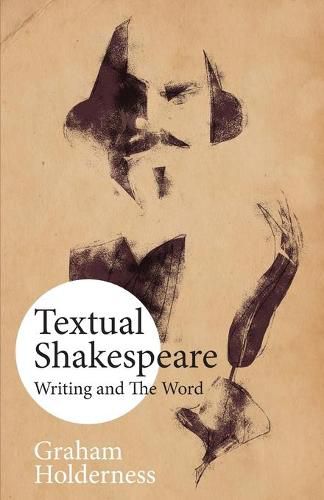Readings Newsletter
Become a Readings Member to make your shopping experience even easier.
Sign in or sign up for free!
You’re not far away from qualifying for FREE standard shipping within Australia
You’ve qualified for FREE standard shipping within Australia
The cart is loading…






This title is printed to order. This book may have been self-published. If so, we cannot guarantee the quality of the content. In the main most books will have gone through the editing process however some may not. We therefore suggest that you be aware of this before ordering this book. If in doubt check either the author or publisher’s details as we are unable to accept any returns unless they are faulty. Please contact us if you have any questions.
In this expanded and much revised new edition Professor Holderness reassesses the Bard as a writer in the light of the most recent revolution in bibliography and textual studies. This has shifted much opinion about the playwright, how he worked, and with whom he collaborated. Yet there remain many unsolved riddles.
This is a book about unresolved (and unresolvable?) questions about Shakespeare, and about writing, creativity and its study.
Professor Holderness reviews the current debates in textual theory and practice. He concludes that Shakespeare is not a writer but a collection of documents, none of which can with any certainty be linked to whatever it was the author wanted to say. He goes beyond both traditional and materialist bibliography to show that texts are both physical media, made and remade by a series of craftspeople; and rich repositories of changeable meaning.
According to modern literary studies all texts are copies, always already changed, and there are no originals . Editors are translators; and scholars and critics rewrite the writing they study. The book advocates a recovery of ancient concepts such as creativity and imagination, together with a recognition of the technical and essentially collaborative nature of all writing. Shakespeare is then situated within this theoretical context, via a brief history of the plays’ textual reproduction.
A series of chapters on individual plays provides illustrative examples of such textual activities in practice. The book concludes that all Shakespeare scholarship, editing and criticism are devoted to a quest for something missing: not the lost manuscript (which even if recovered would not in any case answer all our questions), but rather the absence that writing always invokes.
$9.00 standard shipping within Australia
FREE standard shipping within Australia for orders over $100.00
Express & International shipping calculated at checkout
This title is printed to order. This book may have been self-published. If so, we cannot guarantee the quality of the content. In the main most books will have gone through the editing process however some may not. We therefore suggest that you be aware of this before ordering this book. If in doubt check either the author or publisher’s details as we are unable to accept any returns unless they are faulty. Please contact us if you have any questions.
In this expanded and much revised new edition Professor Holderness reassesses the Bard as a writer in the light of the most recent revolution in bibliography and textual studies. This has shifted much opinion about the playwright, how he worked, and with whom he collaborated. Yet there remain many unsolved riddles.
This is a book about unresolved (and unresolvable?) questions about Shakespeare, and about writing, creativity and its study.
Professor Holderness reviews the current debates in textual theory and practice. He concludes that Shakespeare is not a writer but a collection of documents, none of which can with any certainty be linked to whatever it was the author wanted to say. He goes beyond both traditional and materialist bibliography to show that texts are both physical media, made and remade by a series of craftspeople; and rich repositories of changeable meaning.
According to modern literary studies all texts are copies, always already changed, and there are no originals . Editors are translators; and scholars and critics rewrite the writing they study. The book advocates a recovery of ancient concepts such as creativity and imagination, together with a recognition of the technical and essentially collaborative nature of all writing. Shakespeare is then situated within this theoretical context, via a brief history of the plays’ textual reproduction.
A series of chapters on individual plays provides illustrative examples of such textual activities in practice. The book concludes that all Shakespeare scholarship, editing and criticism are devoted to a quest for something missing: not the lost manuscript (which even if recovered would not in any case answer all our questions), but rather the absence that writing always invokes.